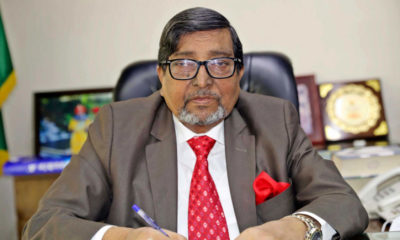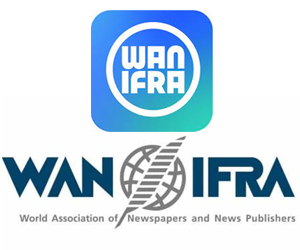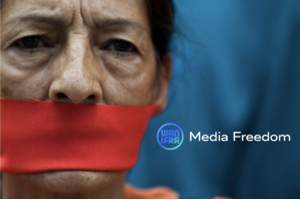Politics
GSP, democracy, RAB sanction to feature Dhaka-Washington talks
Published
3 years agoon

The suspension of the GSP (generalised system of preferences) facility in the US market has made Bangladesh miss out on another big opportunity – the country cannot access the $60 billion fund of the US Development Finance Corporation (DFC) for private sector energy, healthcare, critical infrastructure and technology projects.
Bangladesh is not considered for loans from the DFC as the US has not yet given back the GSP facility to the country, after it had suspended the trade benefit in June 2013, citing serious shortcomings in labour rights and workplace safety following the Rana Plaza building collapse.
The thorny issue of GSP looks set to appear in the Dhaka-Washington partnership dialogue in March, while US sanctions on RAB and its senior officials, democracy and human rights are expected to be high on agenda in the talks, officials at the ministries of commerce and foreign affairs have said.
Established in 2019, the DFC also provides financing for small businesses and women entrepreneurs in order to create jobs in emerging markets.
Its investments adhere to high standards and respect the environment, human rights, and worker rights.
The finance corporation provides direct loans and guarantees of up to $1 billion for tenures as long as 25 years and support for emerging market private equity funds to help address the shortfall of investment capital. It has a total investment limit of $60 billion. It also covered up to $1 billion against losses due to currency inconvertibility, government interference, and political violence including terrorism.
While announcing the GSP suspension, the US provided Bangladesh with a 16-point action plan which, if implemented, could provide a basis for reinstating the GSP trade benefits. The actions prescribed by the US included improving labour standards, ensuring workers’ rights, reinstating the registrations of the organisations of workers’ leaders Kalpana Akhter and Babul Akhter, properly investigating the Aminul murder case, and repealing or overhauling of EPZ law to ensure protection of workers’ freedom of association.
Claiming that all these conditions had been met, Bangladesh kept urging the US in various bilateral talks, including the Trade and Investment Cooperation Forum Agreement (TICFA) meetings and partnership dialogues since 2015 to reinstate the GSP facility, but in vain. Disappointed at repeated refusals, Dhaka in 2018 decided not to formally request the US to restore the trade benefits.
But, once Joe Biden took over as President of the United States in 2020, Bangladesh again requested the US authorities to restore the GSP, highlighting its progress in improving labour standards and protecting labour rights.
The formation of the DFC and the recent move to amend the GSP policy by the US have made Bangladesh interested in getting back the trade privilege.
Officials at the Ministry of Commerce and the Ministry of Foreign Affairs said Dhaka may again raise the issue of GSP reinstatement in the Bangladesh-US Partnership Dialogue to be held in Dhaka on 20 March this year.
Masood bin Momen, senior secretary to the foreign ministry, will lead the Bangladesh side at the meeting while the US delegation will be led by Victoria Nuland, undersecretary for political affairs at the US Department of State.
The message that Bangladesh Ambassador to Washington, M Shahidul Islam, sent to Dhaka earlier this month following his meeting with Christopher Wilson, assistant USTR (United States Trade Representative) for South and Central Asia, and Zeba Reyazuddin, deputy assistant USTR, however, could not make high officials at the commerce ministry and experts on international trade policies much optimistic about the new US GSP policy.
At the meeting, USTR officials told the ambassador that the new GSP policy placed in the Congress – expected to take effect in 2022 – imposes more stringent conditions on eligibility for GSP.
An additional secretary to the commerce ministry, on condition of anonymity, told The Business Standard that Bangladesh still has a slight hope since USTR officials discussed the new GSP policy with the Bangladesh envoy at the February meeting.
Asked, Mohammad Hatem, senior vice-president of the Bangladesh Knitwear Manufacturers and Exporters Association (BKMEA), said he did not know much about the new US GSP policy.
Anwar-ul-Alam Chowdhury, former president of the Bangladesh Garment Manufacturers and Exporters Association (BGMEA), said the same.
He, however, said even if the United States reinstates the GSP facility for Bangladesh, the country will not give this benefit to ready-made garment products. The US does not give GSP facility to garment items of any other country either.
Abdur Razzak, research director at the Policy Research Institute (PRI) and former head of the Department of International Trade at the Commonwealth Secretariat in the United Kingdom, told that the new GSP policy of the United States probably does not have any good news for Bangladesh.
The United States provides GSP benefits to African countries under the Africa Growth and Opportunity Act (AGOA). Even there, countries that are not compliant with workers’ rights, environmental protection, human rights and intellectual property rights have had their GSP suspended.
In this context, it is normal that the new GSP policy will be tougher, he observed.
“The United States is not satisfied with the labour rights situation in Bangladesh. Bangladesh has not made much progress in the areas of environmental protection, human rights and intellectual property rights either. Therefore, there is no possibility of including Bangladesh under the new GSP policy. What is more, many of the countries that are currently enjoying GSP benefits will be left out,” he explained.
According to official data, with an annual bilateral trade volume of over $9 billion, the US is one of the largest trading partners of Bangladesh and an important source of foreign direct investments. Though Bangladesh hedges USA in terms of export, high tariffs on RMG products, labour issues and graduation from LDC status are future challenging factors for Bangladesh to grow exponentially in the US market.
In the launching ceremony of US-Bangladesh Business Council in April 2021, Prime Minister Sheikh Hasina offered the US side a dedicated Special Economic Zone. The US side may invest in capacity building and research projects relating to Intellectual Property Rights and in the ICT and telecommunication sector. Bangladesh will identify other specific sectors like infrastructure, healthcare, electronics, energy, medical equipment, agro and leather goods etc.
The foreign ministry, which is in negotiations with the US side on the agenda for the forthcoming partnership dialogue, has requested the other ministries concerned to propose agenda items pertinent to the dialogues, said officials at the ministry.
They, however, mentioned that the main agendas of the meeting are likely be to democracy, human rights and labour rights situation in Bangladesh, sanctions on RAB and its senior officials, and economic cooperation, climate change and Covid-related cooperation, maritime cooperation and harnessing the potential of Free and Open Indo-Pacific, cooperation in peacekeeping operations, counterterrorism, military to military exercise and defence procurement.
In the partnership dialogue held in 2019, USTR representatives said their top concerns in Bangladesh were workplace safety, labour rights, and trade union issues.
Apart from the 16-point action plan on labour rights, the United States is now focusing on child labour in various sectors of Bangladesh. Dhaka will present information on the progress of Bangladesh in this matter.
Dhaka-New York direct flight by Biman
Reopening of Dhaka-New York direct flight requires meeting the specific compliance issues as prescribed by the US. The relevant ministry’s effort to comply with the requirements may be reviewed and possible engagement to quicken the process should also be discussed.
Production of US Covid-19 vaccine in Bangladesh
The US has donated a total of 18.5 million doses of Covid-19 vaccine to Bangladesh under the Covax initiative. The US government has also contributed over $121 million on Covid-related assistance to Bangladesh through vaccination support, improving testing, infection and prevention control, treatment and supply chain and logistics management systems.
But Bangladesh wants to work with the US to jointly produce vaccines in Bangladesh and share capacity building programmes for research and vaccine production and exemption of intellectual property rights in this cooperation.
Democracy
Democracy, human rights and labour issues will be discussed in the partnership dialogue slated for next month, said foreign ministry officials. At the meeting, the ministry will highlight the enactment of the law on Election Commission formation as a step towards strengthening the democratic process in Bangladesh.
Bangladesh officials think the democracy issue may come to the fore in the light of Bangladesh being excluded from the recently held US democracy conference in early December last year.
Sanctions on RAB, its senior officials
The officials said US sanctions on RAB and its seven current and former top officials on human rights grounds will also be on the agenda at the dialogue.
The Bangladesh government is deeply disappointed to see such unilateral measure without prior consultation as it thinks the sanctions have been imposed based on biassed, untrue, and fabricated information received from politically motivated quarters, they said, adding the government has already taken steps for lifting the sanctions on RAB and its senior officials and take initiative to appoint a lobbyist in USA.
Human rights situation in Bangladesh
Foreign ministry officials said Bangladesh remains committed to ensure rule of law and promote and protect human rights of its citizens. Bangladesh remains open to all, bilaterally and multilaterally, in discussing any human rights issue, with transparency and based on mutual respect, they added.
Maritime cooperation and harnessing the potential of Free and Open Indo-Pacific
After successfully resolving the disputes with India and Myanmar over maritime border demarcation, Bangladesh wants to explore and utilise its vast marine resources. Doing so, Bangladesh believes in the need for a peaceful Bay of Bengal as well as a peaceful indo-pacific region motivated by peaceful settlement of maritime disputes and freedom of navigation.
Bangladesh wants to remain a part of the US-led IPS to fortify its economic development based on mutual trust and respect, but likes to distance itself from military alliance, according to foreign ministry officials.
Bangladesh maintains close communication with the US on maritime security issues, and likes to have regular joint exercises, joint humanitarian operations assistance and disaster response (HADR) programmes, exchange of technical and security expertise in terms of building safe marine zone and harnessing the potentials of Blue Economy, including areas of ship building and deep sea fishing, through capacity building and technology transfer.
Joining Quad
Dhaka believes that Bangladesh’s joining the US-led anti-China military alliance Quad could also be discussed in the partnership dialogue.
In addition to the United States, Japan, India, and Australia are in the alliance. The United States offered Bangladesh to be a member of the quad at various times, but the government did not accept it.
The two countries also discussed the issue in the partnership dialogue held in 2019. The issue also came up in the three-day Munich Conference held on 18-20 February this year. There, the United States and India advised Bangladesh to move away from China and turn to Quad.
On the other hand, China, one of the largest development partners of Bangladesh, also warned last year that Bangladesh’s joining the Quad would worsen Bangladesh-China relations.
Foreign Minister AK Abdul Momen, however, said China has come forward with “a basket of money” for the development of Bangladesh. “They have come up with aggressive as well as cost-effective proposals. Does the United States want to come up with more attractive funding proposals for infrastructure development in countries like Bangladesh?”
Referring to the US, the foreign minister said, “We need more funding from our development partners, but unfortunately, they bring a lot of complications and it becomes difficult for us to accept their proposals.”
Directing at Foreign Minister Momen, his Indian counterpart Subrahmanyam Jaishankar recently said which country will take investment from whom should be considered in the interest of that recipient country. It is important to make informed decisions about what the investment-receiving country is getting, he added.
During the visit the then US Secretary of State Hilary Clinton to Bangladesh in May 2012, the two countries signed a Joint Declaration on Bangladesh-US Partnership Dialogue and decided to institutionalise all the regular dialogues under a broader framework and to discuss the issues that are particularly important to cement the bilateral ties of the two countries.
Following this the first Bangladesh-USA Partnership Dialogue was held on 19-20 September 2012 in Washington DC. Since then, the dialogue has been held alternately in each-others’ capital annually. Amid the Covid-19 pandemic, the dialogue could not be held for the last two years.
The agenda including political relations, economic cooperation, security engagement and other common and regional issues germane to the interests of Bangladesh and the USA arising from time to time are discussed in a structured and distinctive manner in this dialogue.
The partnership dialogue is indeed the umbrella dialogue, encompassing all aspects of political, economic and security relations, between two countries.
Politics
Foreign powers like US behind my ouster: Indian media quotes Hasina
Published
2 months agoon
August 11, 2024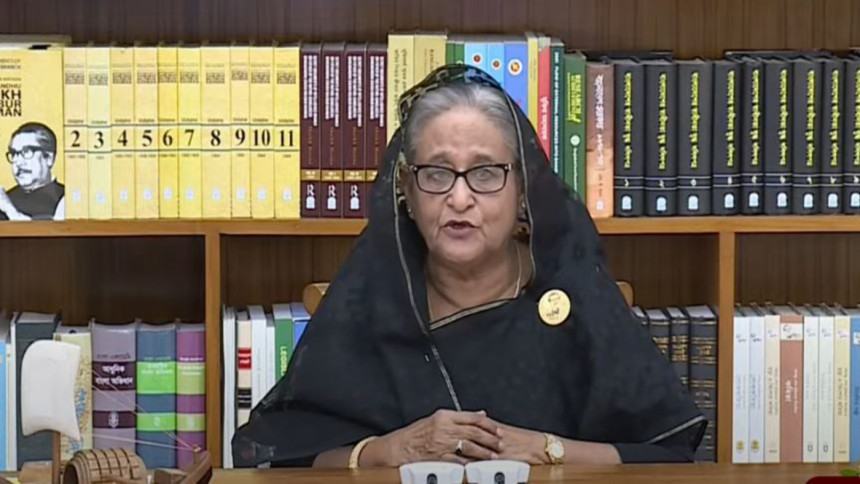
In what is being called in Indian media to be her first statement since resigning and fleeing the country on August 5, former prime minister Sheikh Hasina has accused foreign powers like the US of playing a hand in her ouster.
Indian news outlet The Print in an article today said it had seen the message conveyed to Hasina’s Awami League supporters. India’s Economic Times also carried an article about the message, which The Daily Frontline has not been able to independently verify.
“I could have remained in power if I had left St Martin and the Bay of Bengal to America,” she said in the message.
According to The Print, the Hasina government saw strained relations with the US for many years. Ahead of January’s elections this year, she said “a white man” had offered her a smooth return to power in exchange for an airbase.
Hasina also warned the new interim government not to be “used” by such foreign powers.
Led by Nobel Laureate Muhammad Yunus, the new interim government was sworn in on Thursday night, three days after Hasina’s ouster.
“I resigned so that I did not have to see the procession of dead bodies. They wanted to come to power over your [students’] bodies, I did not allow it. I came with power,” read Hasina’s statement.
“Maybe if I was in the country today, more lives would have been lost, more wealth would have been destroyed,” she added.
She is also expected to address the media while in India next week, The Print article said.
Sheikh Hasina resigned as prime minister and fled Bangladesh on August 5, when a student-led protest culminated in a mass uprising against her Awami League government.
More than 400 people were killed in the preceding three weeks, a majority of them in police firing and firing by Awami League activists.
The US is Bangladesh’s largest foreign direct investor.
In her message to supporters and party cadres, she vowed to return to the country, though accepting her defeat.
“I will return soon inshAllah. The defeat is mine but the victory is [that of] the people of Bangladesh,” she stated.
“I removed myself, I came with your victory, you were my strength, you did not want me, I myself then left, resigned. My workers who are there, no one will lose morale. Awami League has stood up again and again,” she added, according to The Print.
The former prime minister also accused people of distorting her words.
“I want to repeat to my young students, I never called you Razakars … My words have been distorted. A group has taken advantage of your danger,” she said in the message.
The term “Razakar” is considered to be derogatory in Bangladesh as it refers to ‘volunteers’ who collaborated with the Pakistan Army during Bangladesh’s 1971 war for independence.
Politics
Regulator orders freeze on bank accounts of Hasan Mahmud, family members
Published
2 months agoon
August 11, 2024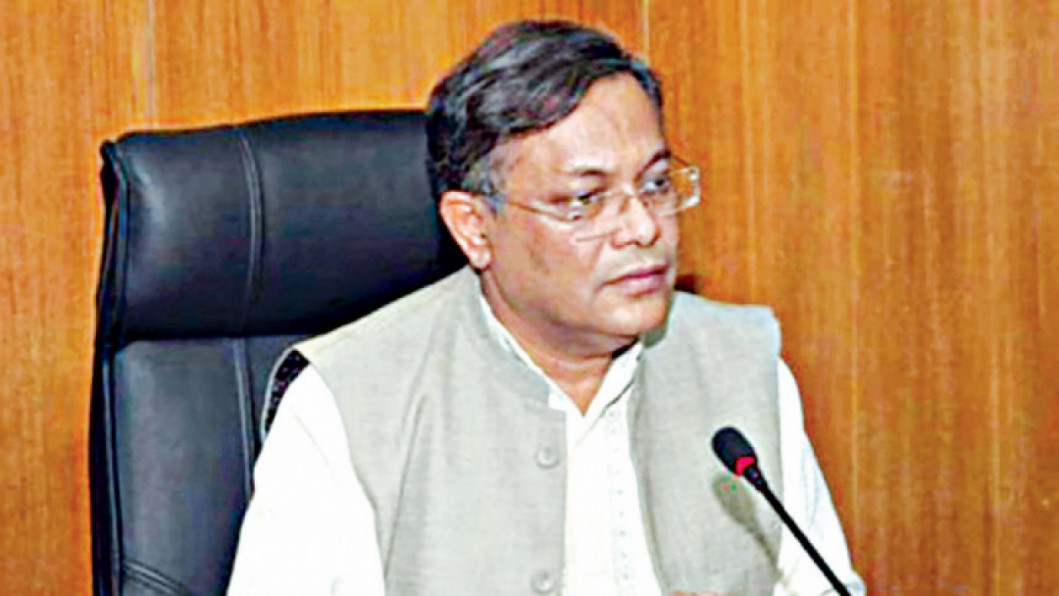
The Bangladesh Financial Intelligence Unit has ordered banks to freeze all accounts of former foreign minister Hasan Mahmud and his family members.
A senior official of the anti-money laundering agency confirmed it.
The BFIU asked the banks to block all types of withdrawals through the individual or business accounts of Hasan Mahmud, his wife Nuran Fatema, and their daughter Nafisa Jumyina Mahmud.
Politics
Police can’t be used as killers, henchmen anymore: Sakhawat
Published
2 months agoon
August 11, 2024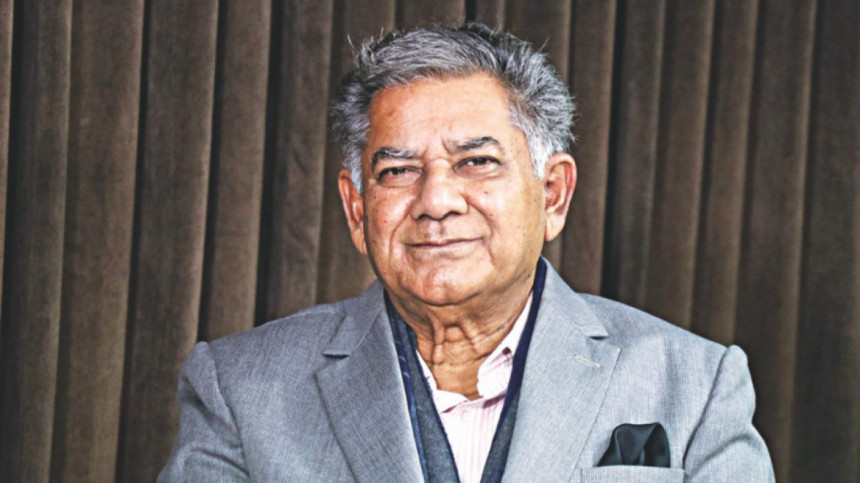
Home Affairs Adviser Brigadier General (Retired) M Sakhawat Hussain today said members of the police force cannot be used as killers or henchmen anymore.
“Police has been given lethal weapons. I was surprised to see 7.62 (firearms) at police’s hand. They were given those weapons 15 to 20 years back … Police should not be given these weapons,” the adviser said.
He was talking to media at the Central Police Hospital in Dhaka after visiting police members who suffered injuries in clashes during the recent mass protests.
The adviser condemned both the killings of general public by shooting and murders of police during the protests.
“I am telling politicians that it will be difficult to do politics now. You can’t use police like killers and henchmen anymore,” he added.
“I will insist that police will run under the police commission. Orders from anyone will be given to the police commission, and they [the commission] will decide what to do,” he said.
“Every day, incidents of robbery are going on as there are no police on the streets. Police are demoralised,” he added.
“Unjust things have happened … I will try to severely punish those who ordered [killing of people by shooting] either at home or abroad,” he said.
“The politics of Bangladesh is the politics of sycophants. Such flattery is created that people are dying and they say nothing happened,” he added
He asked police members not to apply excessive force.
“Our society can’t run without police,” he said.
The adviser said what the army is currently doing was not their job. But they are still doing it. They were even attacked in Gopalganj.
“A state cannot run like this. Politics of a state cannot go on like this. Bangabandhu has of course contributed, but thousands of people fought and 30 lakh people were killed to liberate the country. The state is not anyone’s personal property,” he said.
“I saw what happened in the country through BBC. But our media said nothing had happened. If media had played an objective role, police would not face this situation. Shame on you.
“A country is submerged when the media does not speak the truth,” he said.
He threatened to shut down media outlets if they are biased towards any one entity.
Regarding the 11-point demand of police members, the adviser said, “They did not want the sky and the moon. Their demands will be met, [but] it may take time to meet some of the demands.”
He urged people to cooperate with police to bring the situation to normal.
Over 400 people including some policemen were killed and several thousand others were injured after in the monthlong protests that eventually forced Prime Minister Sheikh Hasina to resign and flee the country on August 5.

Smart Technologies syndicate sips millions of dollars from IDRA automation

Web Summit to host hundreds of curated community meetups in Lisbon this November

Countries strengthening cybersecurity efforts, but increased action still required



